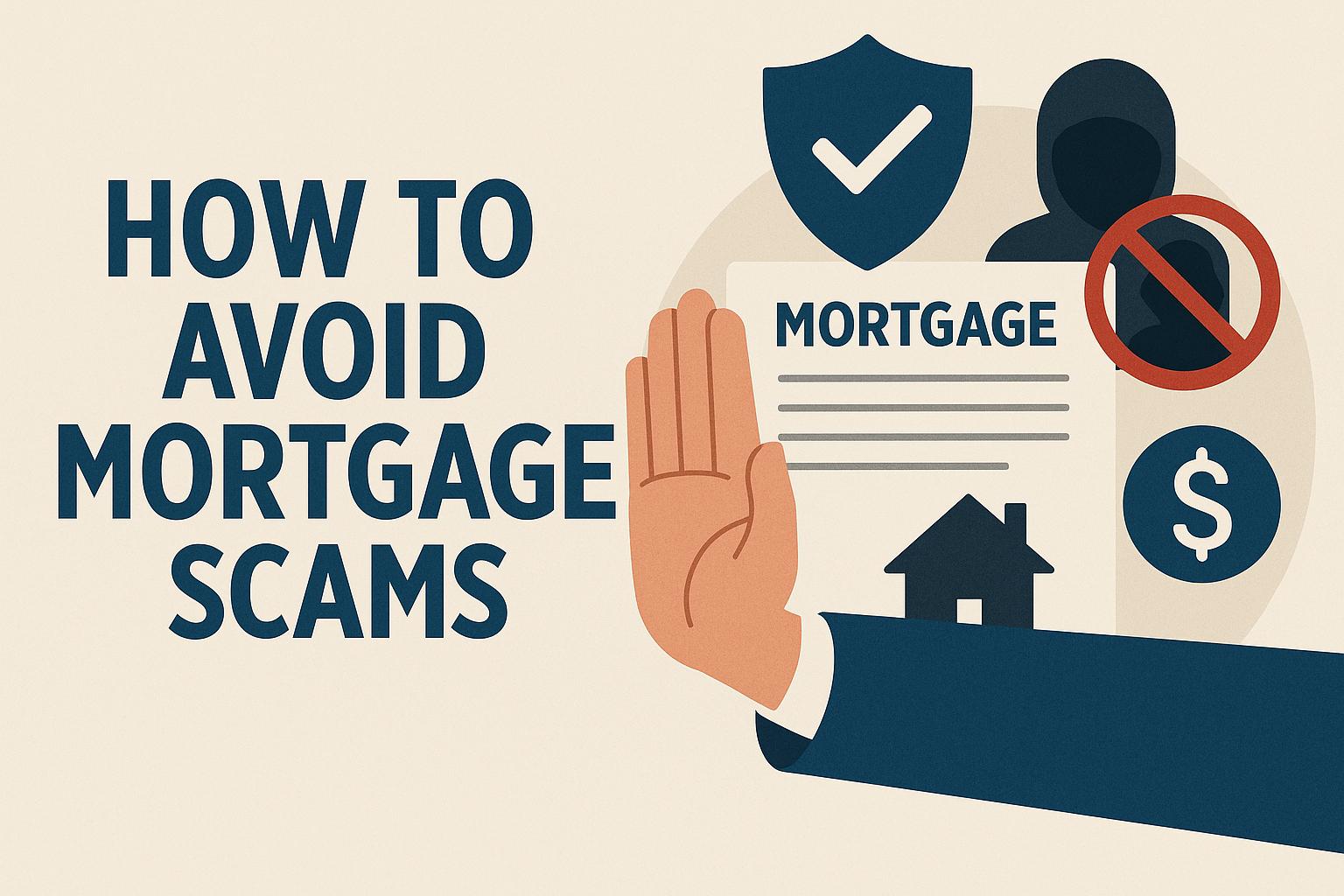
Mortgage scams can cause significant financial harm and distress, making it crucial for individuals considering a mortgage to understand how to recognize and avoid them. Scammers often target potential homeowners by pretending to offer legitimate services, only to manipulate the situation for their gain. Here, we explore ways to protect yourself from these fraudulent activities.
Knowing the warning signs of a mortgage scam can help prevent falling victim to deceptive practices. Some typical red flags include unsolicited offers, guarantees of foreclosure prevention, or demands for upfront fees. Being aware of these can safeguard you against unnecessary financial losses.
If you receive an unexpected offer of assistance or a mortgage deal that appears too good to be true, exercise caution. Reputable lenders usually do not contact potential clients without a prior request for service. Instead, they rely on traditional advertising methods or respond to consumer inquiries and applications. Receiving an unsolicited call or email from someone claiming to be a lender or financial advisor should raise doubts about their intentions.
Some scammers promise to save your home from foreclosure for a fee. Legitimate lenders cannot guarantee such outcomes, as they depend on negotiations and other complex factors. Always question anyone who promises certainty in situations that are inherently uncertain, such as mortgage negotiations or legal proceedings.
Be suspicious of any company that requests payment before providing services. Legitimate lenders or financial advisors usually deduct fees from the service provided, not before. Accordingly, if you’re asked to make a payment before any work is done or service is delivered, consider it a red flag and investigate further.
Always confirm the legitimacy of the lender or company. With the prevalence of scams, verifying credentials is not merely an option but a necessity. Check their registration with appropriate regulatory bodies. In the United States, the Consumer Financial Protection Bureau (CFPB) is a useful resource for verifying credentials. This ensures you are dealing with a legitimate entity that abides by industry standards and regulations.
Always read all documents associated with the mortgage carefully. Hidden within the legal jargon may be crucial details that can significantly impact your financial obligations. Missing critical clauses might lead to unexpected costs or obligations, which can be financially detrimental. Therefore, never rush the process of reviewing your documents. Allow yourself ample time to read and understand every detail before proceeding.
Protecting your personal financial information is fundamentally essential in safeguarding against scams. Over-the-phone, email, and online scams frequently exploit your personal data to commit fraud. Always communicate through secure and trusted channels, and double-check the authenticity of the source. This involves verifying phone numbers or email addresses and ensuring the platform or website used is encrypted and secure.
Engaging a qualified real estate attorney or trusted advisor to review any mortgage documents before signing is advisable. An experienced professional can provide insights and advice that protect your interests. Such experts can interpret complex legal terms and conditions that you might overlook or misunderstand, ensuring that you make informed decisions every step of the way.
Keeping your knowledge of current scams or fraudulent schemes up to date is crucial. New scams are continually arising, and staying informed is your first line of defense against them. Various official websites, such as the FBI, offer information about common scams and how to report them. Frequent checks on these platforms equip you with updated techniques and strategies employed by scammers.
Mortgage scams can be devastating, not just financially but also emotionally and psychologically. Victims may suffer a loss of substantial sums of money, leading to financial instability or ruined credit scores, which can be difficult to recover from over time. The emotional toll can be quite stressful, energizing fear and anxiety over one’s financial future and living situation.
If you’ve fallen victim to a mortgage scam, immediate steps can help mitigate the effects. Reporting the scam to law enforcement and relevant financial authorities can stop further fraud. Additionally, contacting your bank or financial institution to safeguard your accounts can prevent future unauthorized transactions.
Exploring legal options with the help of a qualified attorney may provide avenues for recovering lost funds. Lawsuits against fraudulent entities, though challenging, can be possible if these companies are traceable and possess assets that can be reclaimed.
Modern technology plays a dual role in mortgage scams. While scammers use technology to reach potential victims, it also provides robust tools to fight against them. Advances in cybersecurity, such as encryption and two-factor authentication, create safe avenues for financial transactions and personal communications, preventing unauthorized access to sensitive information. Embracing and understanding these technological advancements can be a cornerstone of your defense strategy against scams.
Mortgage scams are complex and evolving schemes that require vigilance, a thorough understanding of the process, and proactive measures to combat them. By recognizing red flags, verifying credentials, reading documents carefully, securing personal information, and staying informed, individuals can significantly reduce their risks. Membership in community or online forums discussing real estate transactions and fraud awareness can also enhance one’s ability to detect and avoid scams. Such collective awareness and disseminated knowledge are invaluable in creating a well-informed, vigilant society that is less susceptible to fraudulent behaviors.
This article was last updated on: October 9, 2025